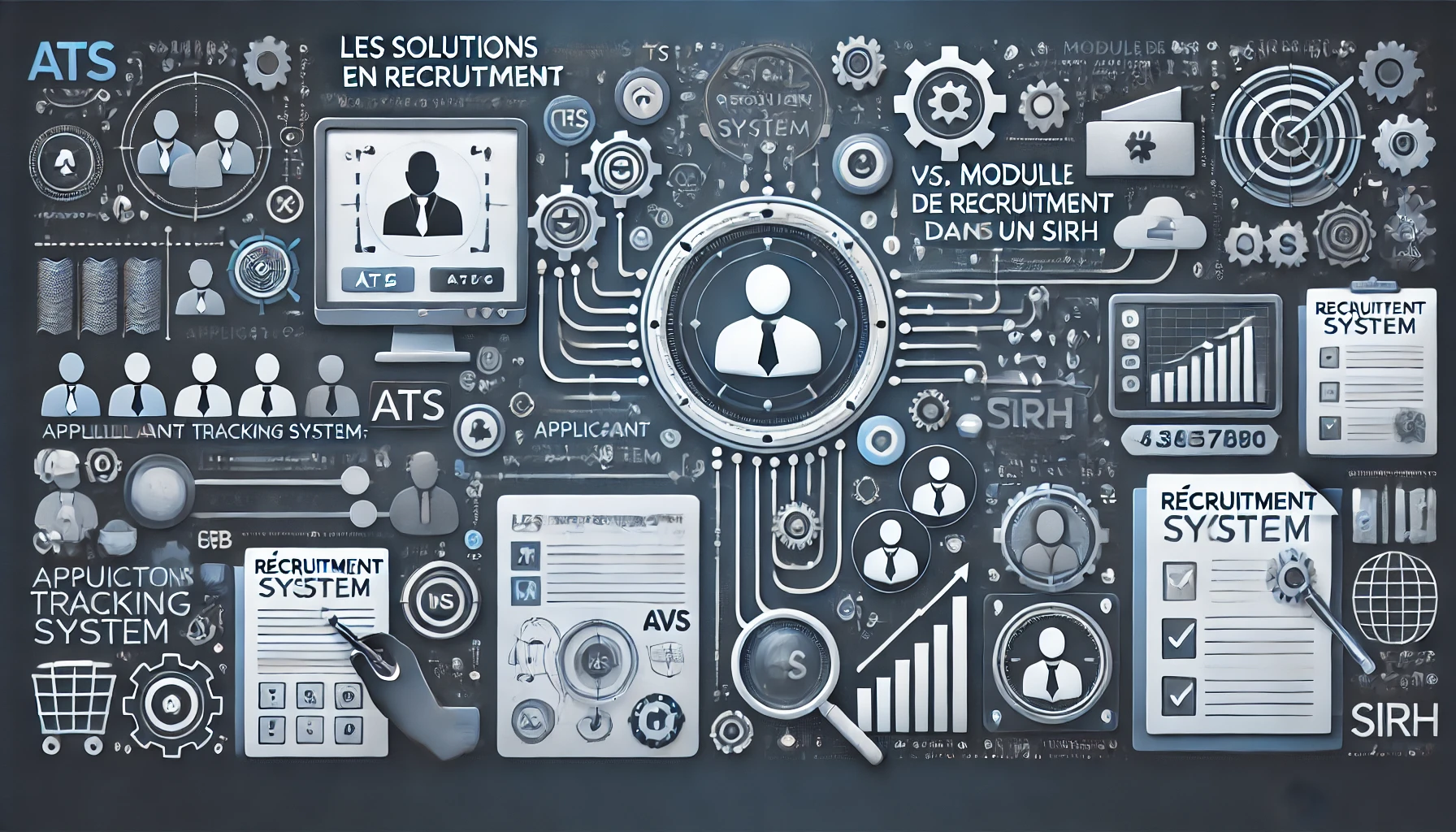 (1).png)
Recruitment in the Digital Era: Essential Terminologies and Digital Solutions
Recruitment is a fundamental function in human resource management, and its landscape has been
significantly transformed by the evolution of digital technologies. However, recruitment professionals often
face a complex lexicon and an overwhelming array of digital tools. This article aims to demystify the
various common recruitment terminologies while providing insight into the associated digital solutions. We
will specifically examine the differences between an Applicant Tracking System (ATS) and a recruitment
module within an HRIS.
Understanding the Different Terminologies in Recruitment

- Recruitment: This term refers to the overall process of identifying, attracting,
selecting, and integrating new employees. This process covers several steps: defining needs, posting job
offers, conducting interviews, and finally integrating talents into the organization.
- Staffing: Staffing goes beyond simple recruitment by taking a strategic perspective. It
encompasses workforce planning, internal mobility management, and skill development to align human
resources with the current and future needs of the company.
- Application Management: This refers primarily to the operational management of received
applications. It includes receiving resumes, pre-selection, interviews, and communication with candidates
throughout the process.
- Talent Acquisition: Unlike traditional recruitment, talent acquisition is a proactive
and strategic approach. It extends beyond immediate needs to anticipate future skill needs. This strategy
includes employer branding and active sourcing.
- Talent Management: It does not stop at hiring. It also encompasses the development,
retention, and career progression of employees within the company, aiming to optimize human capital to
achieve organizational goals.
Digital Recruitment Solutions: ATS vs. Recruitment Module in an HRIS

With the digitalization of HR processes, application management systems have evolved to include a range of
tools facilitating each stage of recruitment. Two types of solutions dominate the market: the Applicant
Tracking System (ATS) and the recruitment module integrated into an HRIS.
- Applicant Tracking System (ATS): An ATS is software specifically designed to manage the
entire recruitment process in an automated way. Its features include:
- Posting job offers on multiple platforms.
- Automated sorting of resumes using predefined criteria.
- Scheduling and tracking interviews.
- Centralized communication with candidates.
- Analysis and reporting of recruitment performance indicators.
- Recruitment Module in an HRIS: Unlike a specialized ATS, the recruitment module within
an HRIS is part of a broader HR solution that integrates other functions such as payroll, performance
management, or skill management.
Key Differences between an ATS and a Recruitment Module in an HRIS:
- Specialization: The ATS is a tool entirely dedicated to recruitment with richer
features, while the recruitment module in an HRIS is integrated into a comprehensive HR management system.
- Customization: ATS systems often offer more advanced options for customizing workflows
and interfaces according to specific needs.
- Integration: An HRIS module facilitates integration with other HR functions, such as
payroll and talent management, creating a harmonious HR ecosystem.
Other Key Digital Solutions
 (2).png)
- Recruitment CRM: These tools allow long-term candidate relationship management,
facilitating proactive sourcing and talent acquisition.
- Sourcing Solutions: Designed to identify and contact passive candidates via social
media platforms, databases, or referrals.
- Artificial Intelligence (AI): AI-based solutions are revolutionizing recruitment by
automating resume sorting, conducting preliminary interviews via chatbot, and analyzing data for
predictive decisions.
- Online Recruitment Platforms: Used to post job offers and reach a broad audience, these
platforms are now essential in digital recruitment.
Conclusion
In an increasingly competitive work environment, HR and recruitment professionals must not only master key
terminologies but also know how to choose the digital tools that meet their organization's specific needs.
Whether you opt for a specialized ATS or an integrated recruitment module in an HRIS, the goal is to improve
the efficiency of your processes while providing an optimal candidate experience.
As an HR professional, you now have a wide range of digital tools at your disposal to anticipate, attract,
and retain talent. By staying at the forefront of these technologies, you enhance your strategic role and
directly contribute to your organization's growth and success.
It’s up to you to choose the recruitment solution that best suits your organization’s specific
needs and its digital future!
If you need advice or personalized support in choosing the ideal HRIS solution, HROps Consulting Inc. is
available to guide you and find the best option for your company.


 (1).png)
 (2).png)